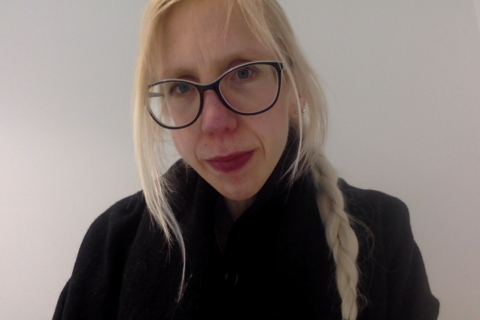
Download
Veranstaltungsort
DIJ Tokyo (access)
Anmeldung
This is a past event. Registration is no longer possible.
DIJ Mailing List
Please subscribe below to stay informed about our research activities, events & publications:
The (c)harms of Artificial Intelligence: an arts-based research approach to regulating emerging technologies
31. März 2023 / 18.30 JST
Freyja van den Boom
How positive are you about our Artificial Intelligence (AI) futures? Perhaps not surprising given the recent developments, most people are worried about the impact AI may have, including discrimination and loss of jobs. On the other hand, there are many opportunities for emerging technologies to help address climate change and deal with an ageing population. As the stakes are high, governments are working hard to develop policies and regulations ensuring AI’s impact will benefit societies. However, my legal analysis of regulation in the field of black box car insurance shows that regulation in Europe has not kept up with providing adequate protection for people against harm. This is likely to be the case for other countries including Japan.
This talk will present a novel approach to help improve regulation to become more inclusive towards the different stakeholders and anticipatory to avoid future harms from emerging technologies. Using arts-based research methods such as speculative design and Science Fiction prototyping helps us to become more creative in how we can regulate AI. Its use in other disciplines has already shown that acknowledging different ways in which people gain access to and share knowledge helps policy discussions to become more inclusive towards underrepresented stakeholder communities and alternative perspectives. It also acknowledges the lack of understanding most people have about what AI actually is and does. Considering the risk that people may lose trust in AI when it doesn’t meet their expectations, this includes having better images to represent what robots look like in reality, and how accurate they are in achieving their goals. After presenting my research and recent findings from speculative design workshops in Japan and Taiwan, I invite the audience to actively take part in a speculative design exercise to experience how thinking about the future may help us make better decisions in the present.
Freyja van den Boom, a recent PhD graduate from Bournemouth University in the UK, is interested in the many socio-legal aspects of AI and Human-Robot interactions. As a multi-disciplinary researcher, she is currently exploring how arts-based research and speculative design can help improve policy and regulation of emerging technologies to become more inclusive and anticipatory. She was a Scholar in Residence at the DIJ in February 2023.